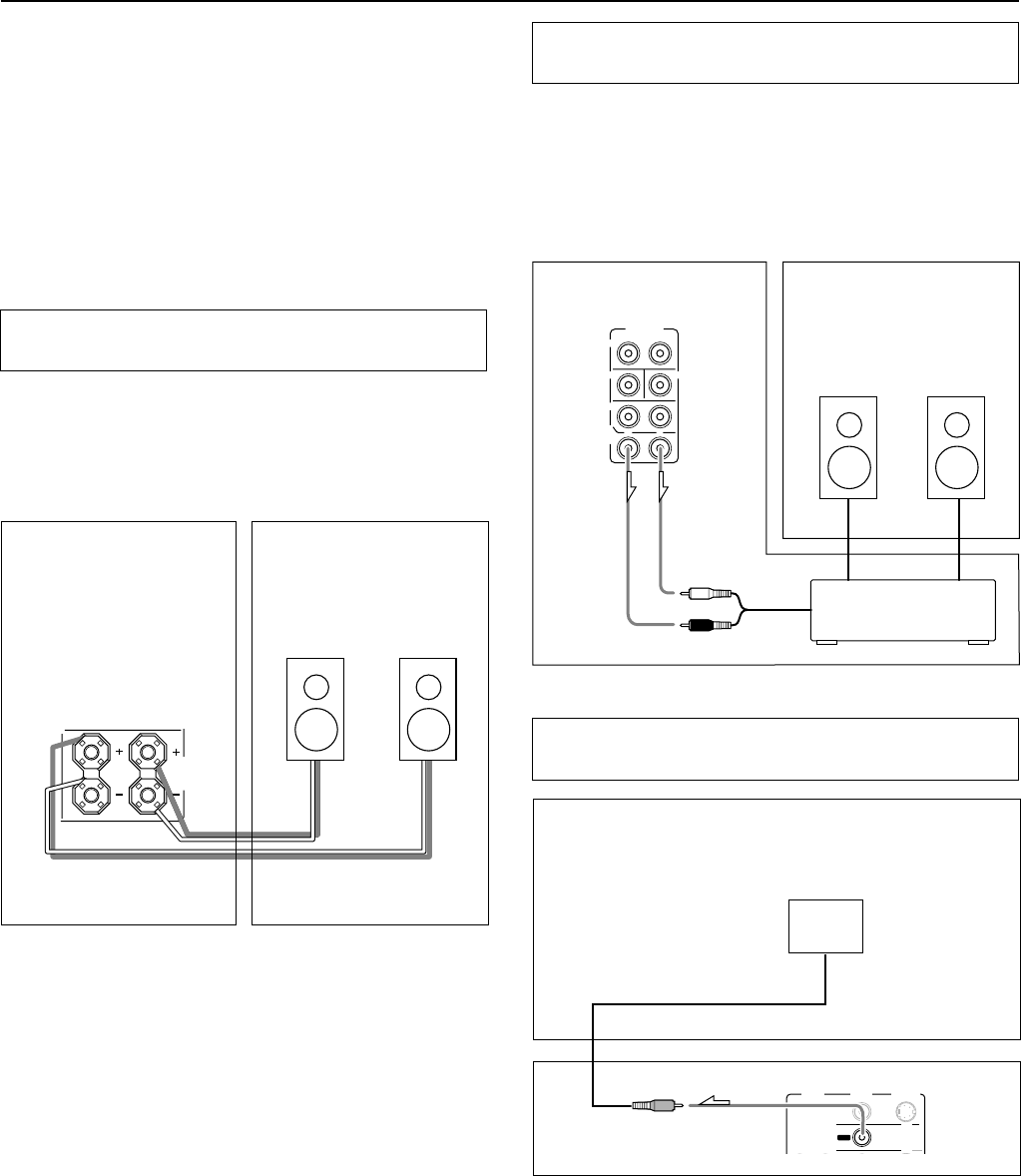
24
When using the SURR BACK/ZONE 2 PRE OUT
terminals
If you are using a 5.1-channel speaker system in the main room, you
can connect the amplifier for the remote zone (Zone 2) to the open
SURR BACK/ZONE 2 PRE OUT terminals and connect the remote
zone speakers.
With this connection, select “Zone 2” for the Hardware Setup →
Surr Back/Zone 2 → Surr Back/Zone2 setting in the Setup menu
(see page 42).
Connecting the DTR-7.3 to the monitor for the
remote zone
The TX-SR800 allows you to watch and listen to two separate input
sources at the same time. This allows you to, for example, place
speakers and a television in two different rooms so that two or more
people can enjoy two different movies at the same time. The room
where the TX-SR800 is actually located is referred to as the main
room while the separate room is referred to as the remote zone (Zone
2). In addition, the IR IN/OUT terminal of the TX-SR800 allows you
to control the TX-SR800 from the remote zone (Zone 2) with the
remote controller even though the remote zone is physically
separated. The diagram below shows how to make the proper
connections for the remote zone.
When using the SURR BACK/ZONE 2 SPEAKERS
terminals
If you are using a 5.1-channel speaker system in the main room, you
can connect the speakers for the remote zone (Zone 2) to the open
SURR BACK/ZONE 2 SPEAKERS terminals.
With this connection, select “Zone 2” for the Hardware Setup →
Surr Back/Zone2 → Surr Back/Zone2 setting in the Setup menu (see
page 42).
Note:
It is important to be aware of the speaker impedance (see page 41).
SURR
BACK/
ZONE 2
SPEAKERS
R
L
Connecting the remote zone (Zone 2) speakers
Remote Zone (Zone 2)Main Room
Zone 2
Right
speaker
Zone 2
Left
speaker
PRE OUT
FRONT
SUB
SURR
R
L
SURR
BACK/
ZONE 2
R
L
CENTE
R
Remote Zone (Zone 2)Main Room
Zone 2
Right
speaker
Zone 2
Left
speaker
Power amplifier
Left (white)
Right (red)
TX-SR800
TX-SR800
MONITOR
OUT
R
L
ZONE 2
AUDIO
VIDEO
S VIDEO
OUT
Remote Zone (Zone 2)
Main Room
DTR-7.3
Zone 2 monitor
or projector


















